Primary (K–5) computing education
In 2023, our seminars focussed on how to best teach computing to our youngest learners in primary and elementary school. Watch recordings, read our summary blogs, and download speakers' slides.
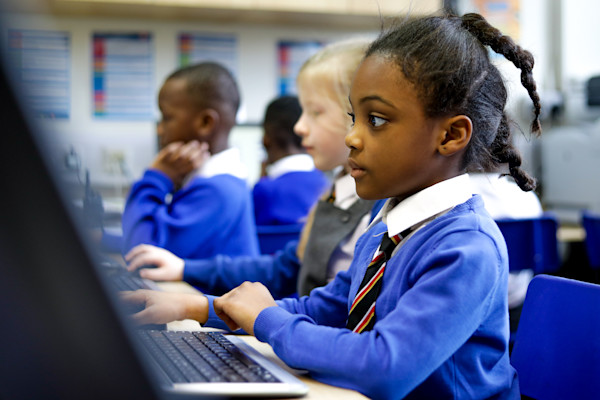
Grounded cognition and computer science conceptual understanding in young children (12 December 2023)

Speaker: Anaclara Gerosa (University of Glasgow)
As computer science (CS) education becomes more prevalent in compulsory education from an early age worldwide, a diverse set of activities have been proposed to teach young children. These include different approaches such as unplugged, physical computing, or completely virtual programming interfaces. For very young children, experiences which integrate action and the use of concrete materials are often used and considered developmentally appropriate. In this talk, Anaclara explored the implications of grounded cognition theory for the design and structure of early computing activities that promote and scaffold students’ conceptual understanding.
Anaclara Gerosa is currently pursuing her PhD in Computing Science at the University of Glasgow under the supervision of Dr Maria Kallia. She holds a Bachelor’s degree in Psychology and a Master’s degree in Cognitive Science. Her current research centres around the field of computing education, approached from an interdisciplinary perspective. The aim of her research is to understand the way young children develop their understanding of computing concepts through action-based activities and engaging with concrete materials.
Seminar materials
Computational thinking in primary schooling: Thinking beyond computer science (7 November 2023)
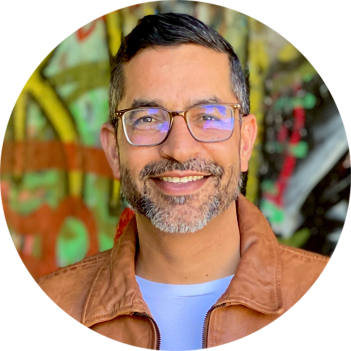
Speaker: Aman Yadav (Michigan State University)
Computational thinking has been argued as a way to bring computer science learning experiences to formal schooling. However, there are still questions about its value and whether computational thinking is any different from other forms of thinking (such as mathematical thinking) that were argued to be important for all learners. In this talk, Aman discussed what makes computational thinking unique for primary schooling and how we should go beyond pushing computer science goals when integrating computational thinking. He discussed findings from the CT4EDU project that showcased what primary teachers consider to be the value of computational thinking. Aman also highlighted the need to broaden the goals of computing education to create a more just and equitable world.
Dr Aman Yadav is a Lappan-Phillips Professor of Computing Education in the College of Education and College of Natural Science at Michigan State University with extensive experience in research, evaluation, and teacher professional development. His areas of expertise include computer science education, problem-based learning, and online learning. His research and teaching focus on improving student experiences and outcomes in computer science and engineering at the K–16 level. He recently co-edited the book, Computational Thinking in Education: A Pedagogical Perspective, which tackles how to integrate computational thinking, coding, and subject matter in relevant and meaningful ways. His work has been published in several leading journals, including ACM Transactions on Computing Education, Journal of Research in Science Teaching, Journal of Engineering Education, and Communications of the ACM.
Engaging primary (K-5) computing teachers in culturally relevant pedagogy through professional development (10 October 2023)
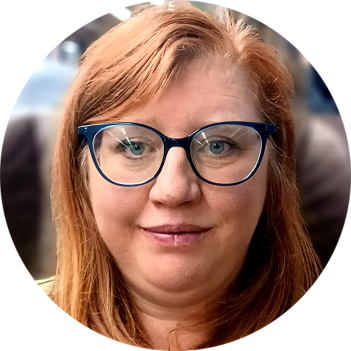
Katharine Childs (Raspberry Pi Foundation)
Countries are increasingly introducing Computer Science as a curriculum subject, but access to learning does not always ensure that all students are included and have the opportunity to succeed. Culturally relevant pedagogy (CRP) is a theoretical framework that aims to make learning more equitable by incorporating learners’ cultures and experiences. Work to localise CRP in the UK is ongoing and has highlighted the need for professional development for primary teachers to apply the theory for use with lesson resources. This session explained in more detail the professional development approach used in a recent research study, and provided a hands-on opportunity to have a go at adapting a short activity to make it more culturally relevant to learners' needs.
Katharine Childs works in the Research team at the Raspberry Pi Foundation with a focus on projects that broaden participation in computing such as gender balance and culturally relevant/responsive teaching. Her background spans both computer science and education, with a first-class honours degree in IT & Computing, and a Master’s degree in computing education. Following 15 years of professional experience working in the IT sector, she went on to teach computing in primary (K-5) schools and deliver professional development activities for other primary teachers. Katharine’s research interests focus on gender balance, inclusivity programming and physical computing.
Giving appropriate feedback to primary school children (12 September 2023)
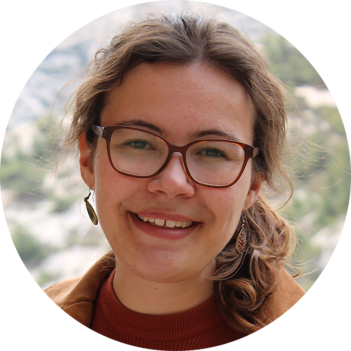
Speaker: Luisa Greifenstein (University of Passau)
Programming in primary schools presents a lot of opportunities, such as the chance to promote positive attitudes towards computer science at an early stage. At the same time, educators need to give corrective feedback that can enhance learning, but might also reduce positive emotions. In this seminar, Luisa focused on strategies for giving appropriate feedback. She presented some findings of a survey conducted with experienced teachers and the results of workshops where her team evaluated different feedback options and the children’s opinions on them. By this, they wanted to describe not only the content of the feedback but also discuss encouraging ways of giving it. Another strategy to support the process of giving feedback is using automated analysis tools. Luisa therefore introduced the Litterbox tool that detects bug patterns, smells, and so-called perfumes in Scratch and mBlock code.
Luisa Greifenstein holds degrees in primary school education and in media computer science. She now connects her two interests in the project “primary::programming” at the University of Passau, Germany, where she is currently doing her PhD. Luisa is keen on finding encouraging ways of giving corrective feedback and thereby engaging children in programming. She has given multiple workshops and courses for primary school children on creative physical computing and first software programming. In all this, she seeks to include the educational inspiration received from her Montessori diploma course.
Young children’s ScratchJr project scores and processes across a 12-week coding curriculum (18 July 2023)

Speaker: Apittha Aim Unahalekhaka (Tufts University)
This seminar presented two ScratchJr studies, which were part of the Coding as Another Language (CAL) project. The first study was the development and testing of the ScratchJr Project Rubric, which has been used to evaluate children’s purposeful creation on the coding and project design aspects of ScratchJr. The study showed that although children (ages 6–8) were able to create more complex projects over time, there were some coding concepts that children uncommonly used. The second study evaluated common processes that young children followed when creating their ScratchJr projects. The implications of this study are essential to inform how teachers and parents may support young children’s creative and exploratory processes when learning with tablet-based coding applications.
Dr Apittha Aim Unahalekhaka, has graduated from Tufts University’s Eliot-Pearson Department of Child Study and Human Development and is a graduate researcher at the DevTech Research Group. Her current research focuses on using data science for early childhood education and learning analytics applications in classroom settings, particularly how children’s engagement patterns with ScratchJr relate to their learning experiences. Her interests include socio-emotional learning, constructionism, adaptive instructional systems, and machine learning. She received her B.S. at the University of Toronto with a double major in Neuroscience and Economics and her Ed.M. at Harvard Graduate School of Education.
Teaching primary learners how to be data citizens (9 May 2023)
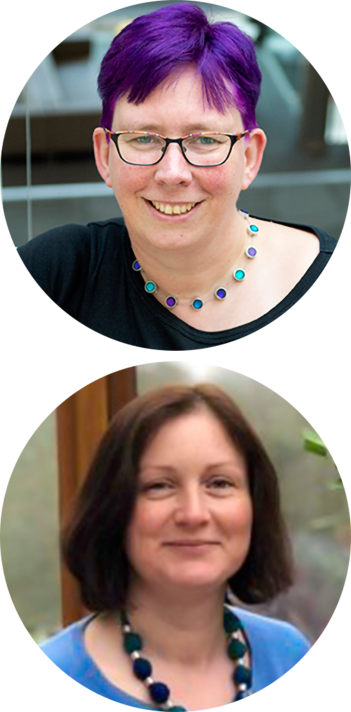
Speakers: Kate Farrell and Judy Robertson (University of Edinburgh)
Data science is the ability to collect, analyse, interpret, and communicate and ask questions about data. As technology makes it easier to collect vast amounts of data, the skills to use data to solve problems will become even more important to today’s learners. This session focussed on how data literacy can be taught in primary and early years education across different curricular areas. Kate and Judy demonstrated how learners can explore data to solve real-life problems to benefit their schools and communities. They also looked at digital and non-digital pedagogical approaches to teaching data science and the range of available resources and ideas, including their popular live lessons that have been played by over 20,000 learners.
Kate Farrell is an educator with expertise in data science, computing science, digital media computing, and moving image education. She advised on the new national computing science curriculum in Scotland for learners aged 3–15. She also wrote guides to teaching computing science for early years, primary, and secondary practitioners (available free at TeachCS.Scot) and developed badge activities in computational thinking with Girlguiding, UK. She now works on the Data Education in Schools project, developing data science and data literacy lessons, resources, and professional learning for primary and secondary schools in Scotland. In her spare time, Kate likes playing board games and breaking out of escape rooms.
Judy Robertson is a Professor of digital learning at the University of Edinburgh. She is the academic lead of the Data Education in Schools project, which aims to promote data literacy in school learners in South East Scotland. She has been developing educational technology with children and teachers since 1997. Her work focuses on how technology can help to solve thorny real-world problems, including serious games and apps for education and health. She is a Senior Member of the ACM and a Senior Fellow of the HEA.
What does research say about computer science integration in primary schools? (18 April 2023)
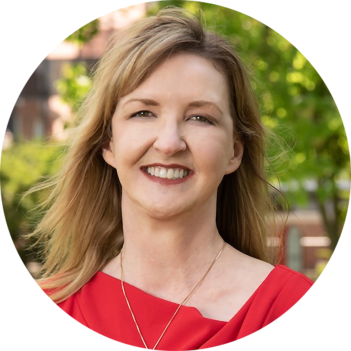
Speaker: Monica McGill (CSEdResearch.org)
Computer Science (CS) is in its early stages of being taught to primary school learners within the United States. It still remains unknown how best to teach CS to students; however, evidence suggests that integrating CS into other subject areas may yield positive learning gains. Monica's research question for this study was: What does existing literature indicate as promising practices when integrating CS into other subjects? To answer this, Monica's team conducted a systematic literature review to identify articles that investigate the integration of computational thinking and/or computer science in primary school formal learning environments. At this presentation, she shared the findings from their literature review, supplemented with findings from interviews conducted with researchers with expertise in CS integration. Further, as teachers struggle to find time to add another subject, Monica discussed how teaching integrated CS can leverage their teaching time without sacrificing other subject areas.
Dr Monica McGill is the Founder, President, and CEO of CSEdResearch.org, a 501(c)(3) non-profit focused on improving K–12 CS education for all children by enabling and disseminating exemplary, evidence-driven research. Dr McGill is passionate about computing education research, which has led the organisation to conduct critical K–12 CS education research sponsored by various organisations, including the National Science Foundation, Google, Amazon Future Engineer, the Computer Science Teachers Association, Code.org, and many more. She blends her experiences as a computer scientist and professor of computer science and game design with her experiences conducting equity-focused education research.
Integrating primary computing and literacy through multimodal storytelling (7 March 2023)

Speaker: Bobby Whyte (Raspberry Pi Foundation)
Most research focused on integrating computing education into existing classroom practices has centred on supporting learning in science, engineering, and mathematics (STEM). Conversely, research in non-STEM areas is less explored. In this talk, Bobby discussed the value of integrating computing in non-STEM areas in primary education. More specifically, he explored in detail the integration of computing and literacy education and considered the implications (and limitations) for classroom practice. Drawing on recent research, the talk also provided practical examples for educators on how to integrate computing and literacy to support students’ emergent programming and storytelling practices.
Dr Bobby Whyte is a computing education researcher with a background in primary education and educational research. He has extensive experience working as a primary school teacher in Ireland, the UK, and Italy. Alongside this, he completed his PhD in Learning Sciences at the University of Nottingham. His work to date has been published in the fields of computing education, the learning sciences, and education research. In 2022, Bobby joined the Raspberry Pi Foundation as a research scientist.
Moving from equity to justice in computing instruction for youth (7 February 2023)
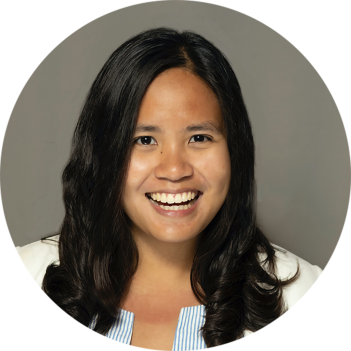
Speaker: Jean Salac (University of Washington)
With many countries worldwide integrating Computer Science (CS) and Computational Thinking (CT) instruction at the primary school level, it is crucial that we ensure that computing instruction is effective for all students. In this talk, Jean presented her work in identifying inequities in elementary computing instruction and in developing a learning strategy, TIPP&SEE, to address these inequities. Students using TIPP&SEE demonstrated improved understanding of computing concepts and better code quality in assignments. Further, the gaps between students with and without academic challenges narrowed when using the TIPP&SEE strategy. Jean also discussed the next steps for her work, transitioning from improving how young people learn computing to questioning what they learn about computing. While computing has provided society with immense benefits, it has also amplified bias with real-world consequences. Currently, she is exploring how young people may learn to examine technology’s role in their lives and society, and how educators can foster a critical understanding of computing in young people for a more just future.
Dr Jean Salac is a postdoctoral researcher and Computing Innovations Fellow at the University of Washington’s Code & Cognition Lab. Her research interests include computer science education and child–computer interaction, particularly in justice-focused computing for young learners. Her work has won Best Paper at the International Computing Education Research Conference (ICER) and an honourable mention for Best Paper at the conference on Human Factors in Computing Systems (CHI). Prior to becoming a researcher, she worked in various STEM education spaces, such as museums, policy, and startups.
Variables: Coordinating research with elementary classroom realities (10 January 2023)
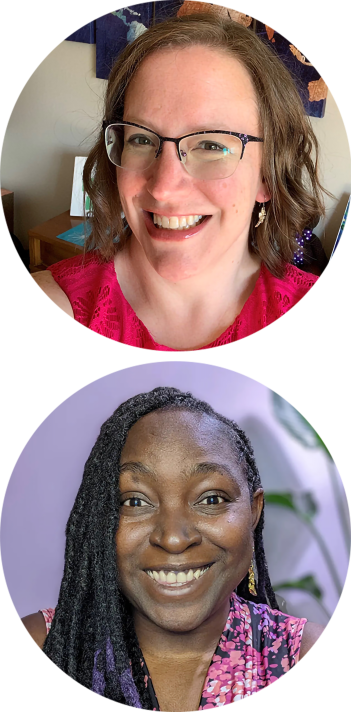
Speakers: Katie Rich (American Institutes for Research) and Carla Strickland (UChicago STEM Education)
Katie and Carla discussed their process for developing instruction about the computer science topic of ‘variables’ for 4th-grade students (ages 9–10). Drawn from theory about learning trajectories, the concept of ‘levels of thinking’ about variables serves as a flexible framework for synthesising existing computing education research while leaving room for adaptability of instruction to the elementary context — specifically, to 4th-grade computer science instruction integrated with mathematics. They also discussed how they incorporated attention to classroom realities, such as teachers’ and students’ existing knowledge about variables (in mathematics or science), instructional time constraints, and nuanced differences in language, into our instructional materials. Lastly, they shared a set of lessons learned from the pilots of their instructional materials.
Dr Katie Rich is a Senior Researcher at the American Institutes for Research in Chicago, IL. She works on a variety of projects related to K–5 mathematics and computer science education. She is experienced in curriculum development, teacher professional development, and research aimed at understanding how teachers implement instructional materials. She is passionate about supporting teachers and helping all students feel empowered as capable mathematicians, computer scientists, and problem solvers.
Carla Strickland is the Digital Development Manager at UChicago STEM Education. As an expert in digitally enhanced STEM curricula, teaching, and learning, she works with elementary teachers and administrators to integrate computer science into their existing STEM instruction, with a particular focus on culturally responsive pedagogy and curricula. Carla brings an Afro-Caribbean perspective and a passion for equitable, high-quality instruction to her work in education.
